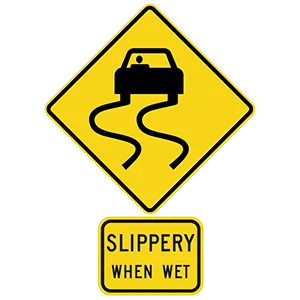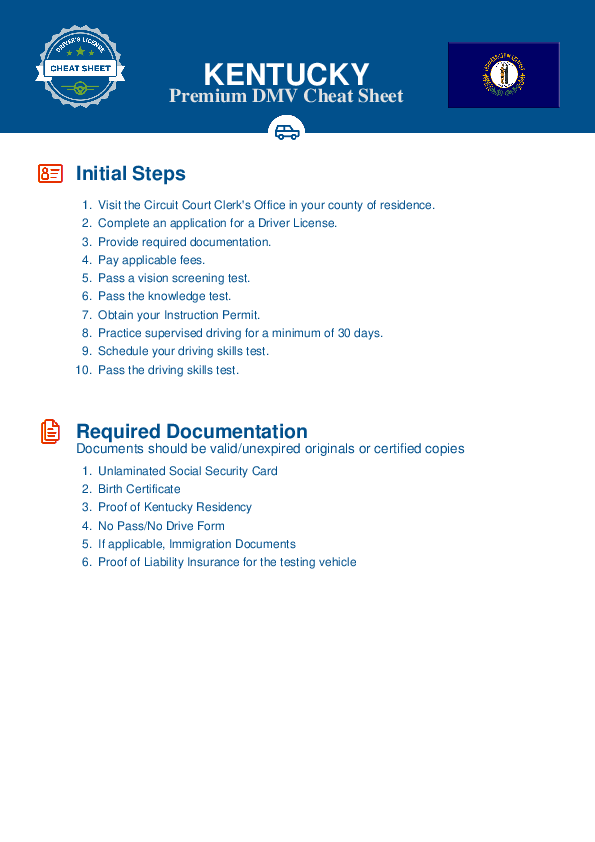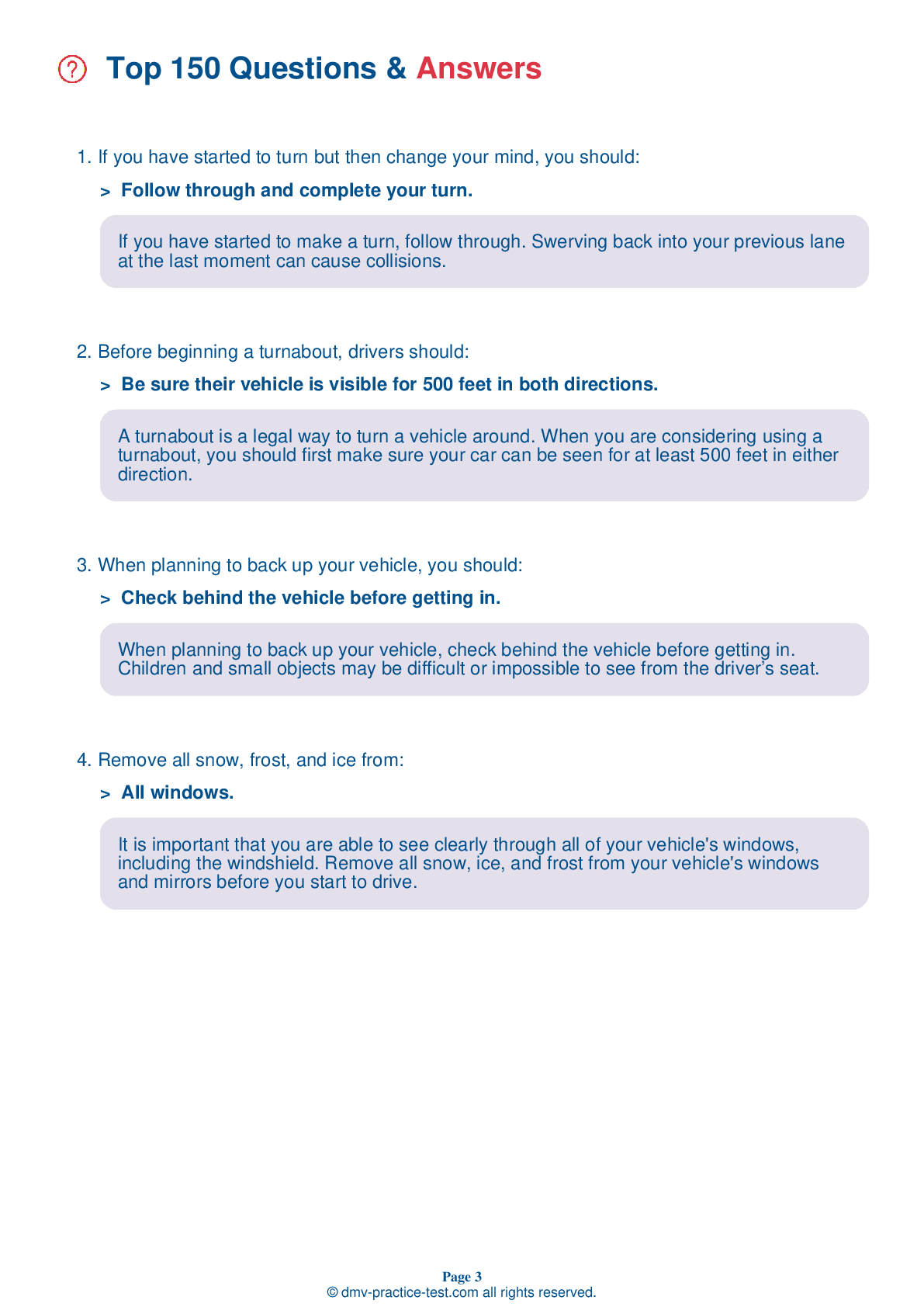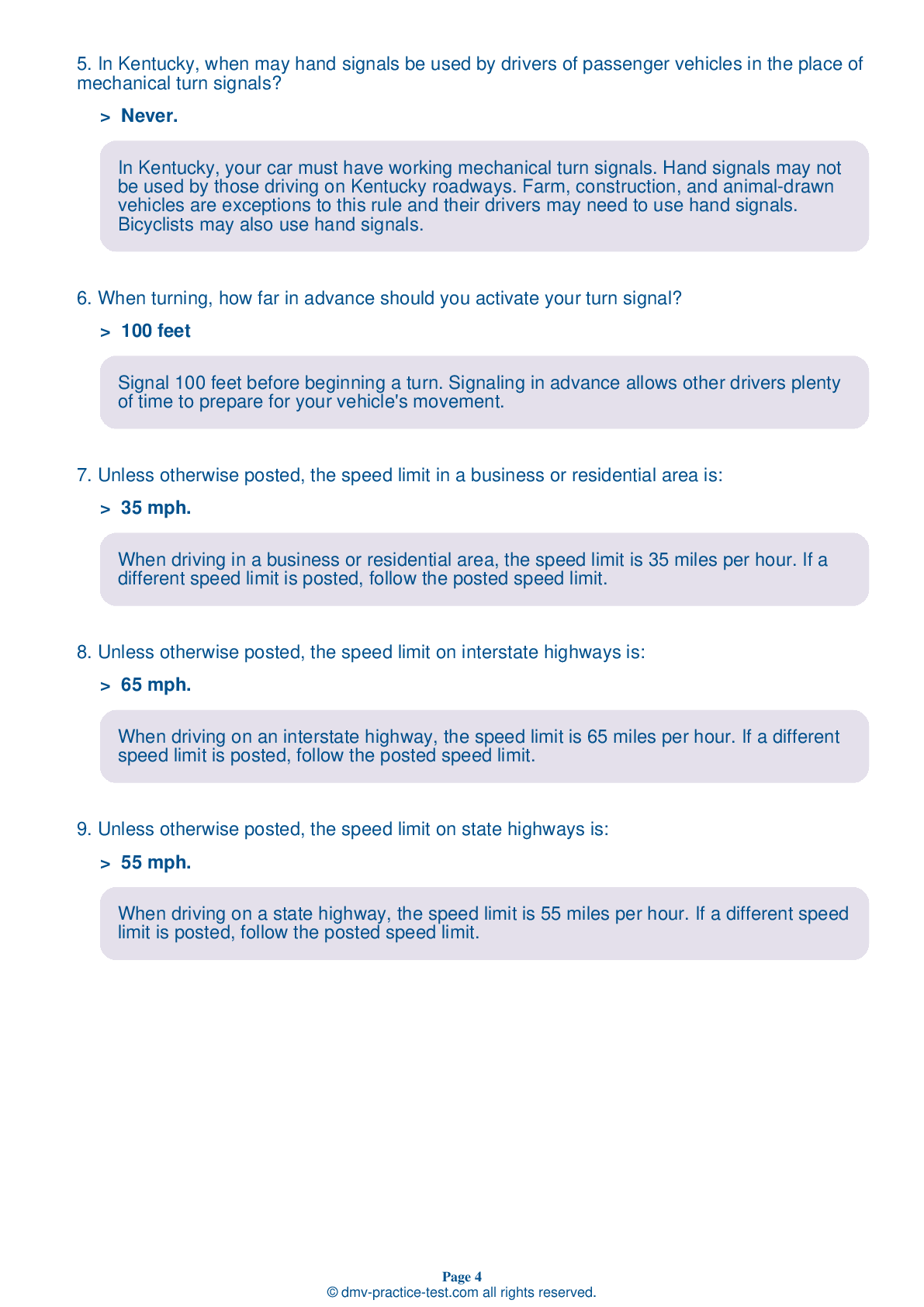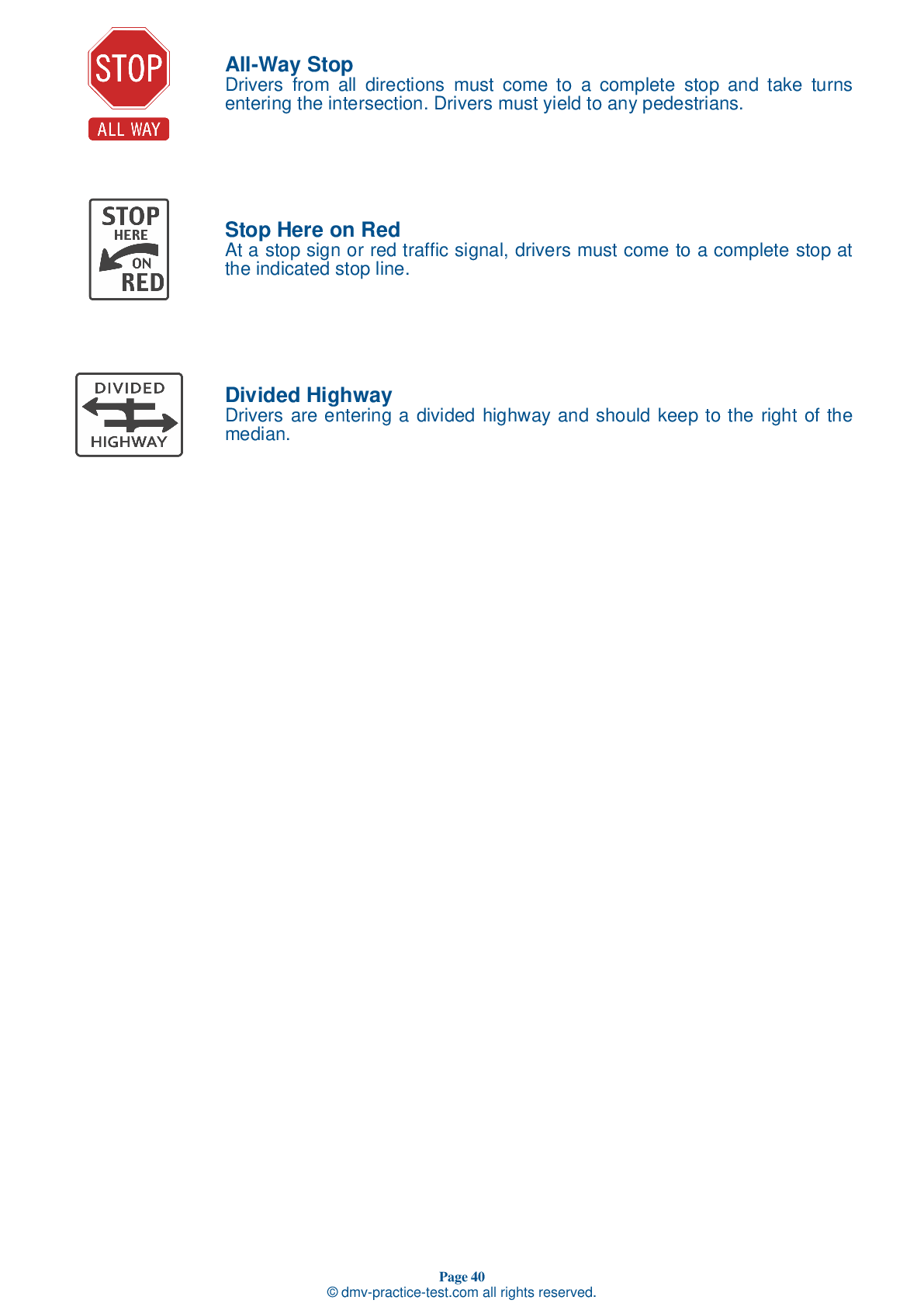FREE Kentucky DMV Practice Test #15 Page 4 of 5
The DMV practise tests in Kentucky have been updated for January 2025. It comprises questions based on the most important traffic signals and laws for 2025 from the KentuckyDriver Handbook. To study for the DMV driving permit test and driver's licence exam, use actual questions that are very similar (often identical!) to the DMV driving permit test and driver's licence exam.
Each question on the practise exam has a tip and explanation to help you recall the ideas. Questions about traffic rules, traffic signs, and driving statutes, as well as knowledge from the Driver Handbook, will be included in the written portion of the official Kentucky DMV test.
You must properly answer 32 of the 40 questions to receive a passing mark. To help you prepare for your Kentucky instruction permit or driver's licence, take our DMV practise test.
The DMV exam is offered in a variety of languages.
Using any form of testing help will result in an automatic fail, and the DMV may take further action against your driver's licence, so avoid it.
25 . This sign means:
